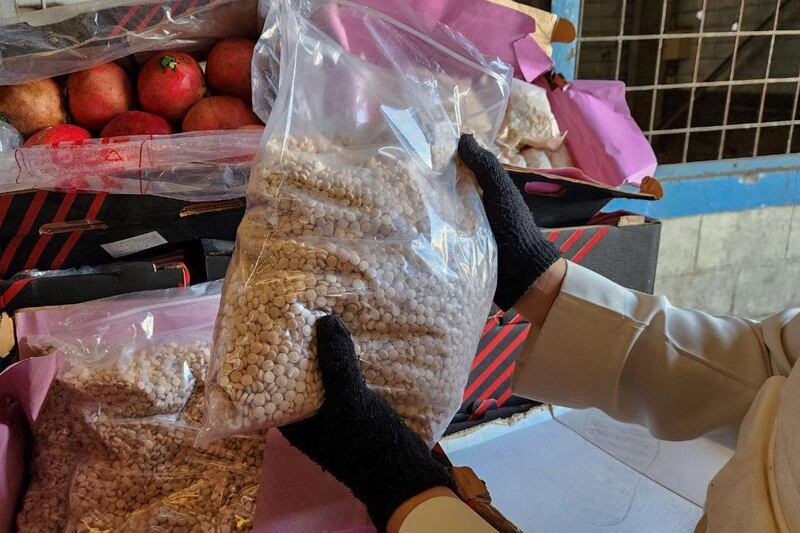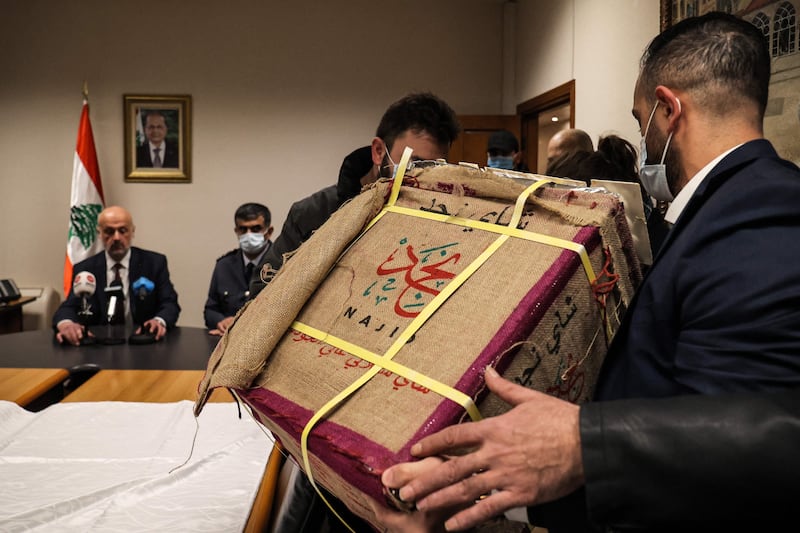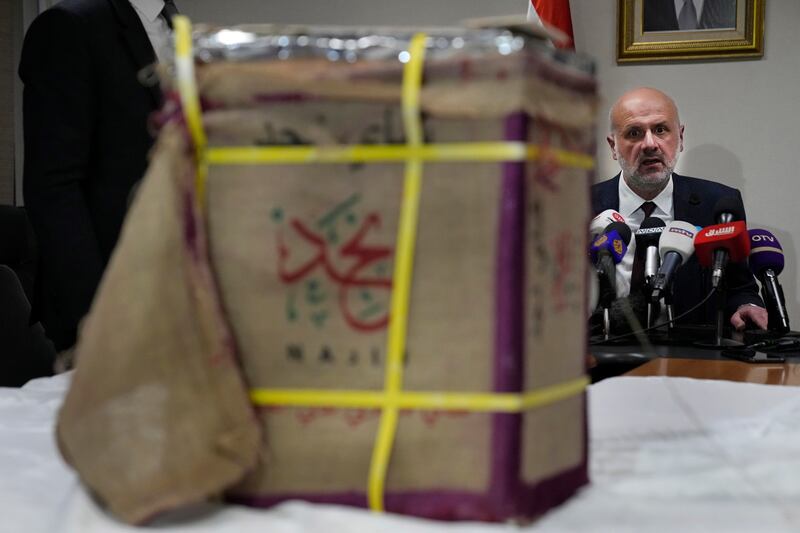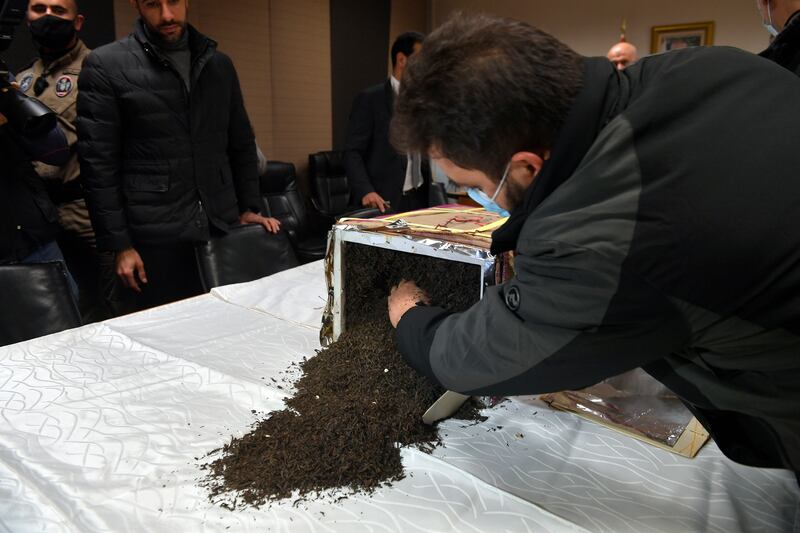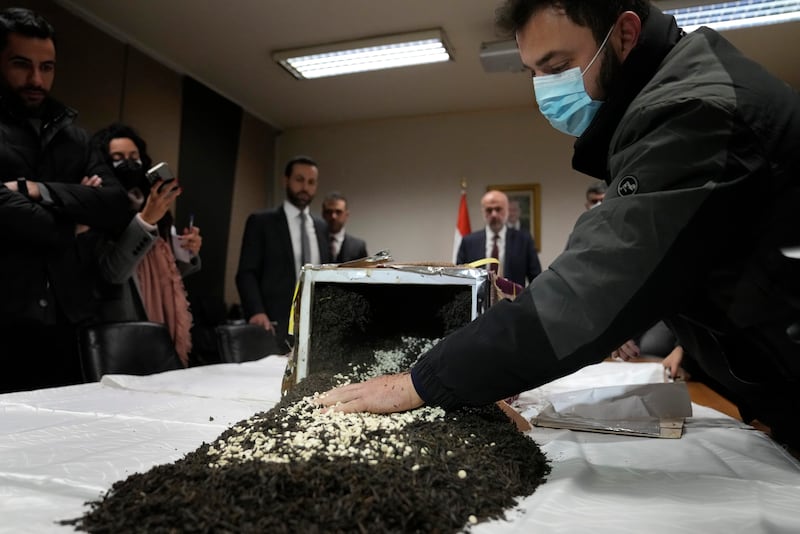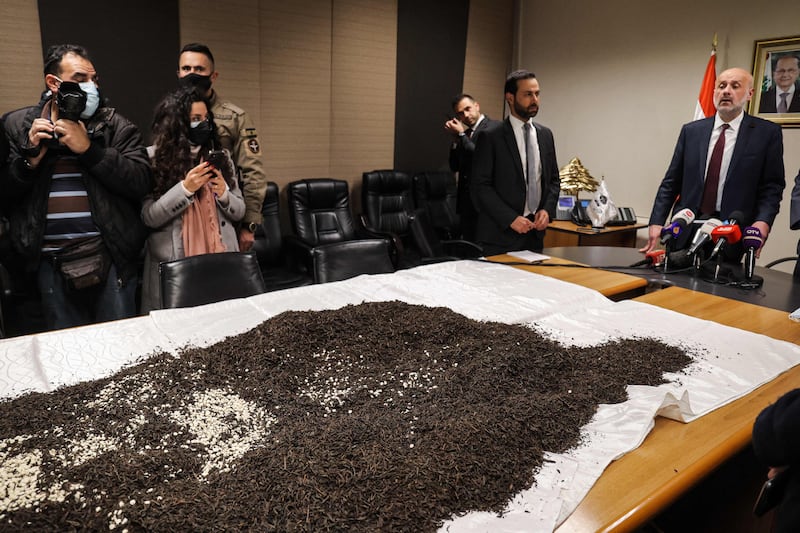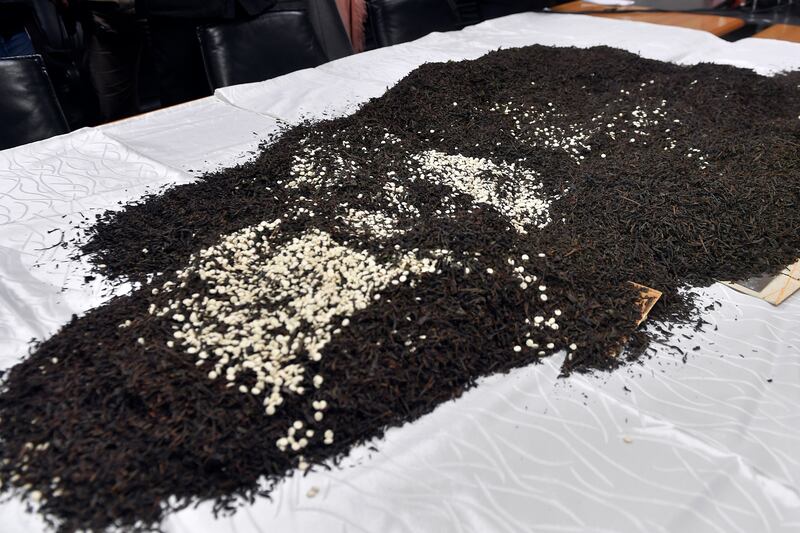A US push to ease the Captagon crisis in the Middle East will include co-ordination with partner countries in the region and new financial weapons, a State Department official said on Thursday.
Under the Captagon Act, which was passed last year, President Joe Biden's administration has until next month to update Congress on its plans to counter the Syria-linked drug trade.
Ethan Goldrich, deputy assistant secretary of state, told the New Lines Institute's annual Captagon conference that the strategy would include policing support, international co-ordination, economic sanctions and other financial tools.
Mr Goldrich said Washington was "particularly focused" on helping Jordan and Lebanon to battle the trafficking of Captagon and other drugs.
"We believe continued co-ordination on sanctions with our partners will help prevent elements of the Assad regime and designated terrorist organisations from using the US and international financial systems to launder drug proceeds," he said.
The highly addictive drug, which ISIS sold to fund their so-called caliphate and gave to its fighters across Iraq and Syria, has become such an important source of funding for Syrian President Bashar Al Assad's regime that experts say the country has become a narco-state.
Trade in the drug had an estimated value of $3.46 billion in 2020. Based on large-scale confiscations alone, the value of the retail trade appeared to rapidly rise in 2021 to an estimated $5.7 billion.
Mr Goldrich said recent joint sanctions imposed by the US and UK on Syrian and Lebanese Captagon producers and traffickers showed what the strategy could deliver.
Among those with sanctions imposed were two cousins of Mr Al Assad and others over their suspected role in the production or export of Captagon.
The measures were also imposed on two Lebanese men and highlight how drug traffickers – some of whom have ties to Hezbollah – enable the export of Captagon, the US Treasury Department's Office of Foreign Assets Control said.
Karam Shaar, a political economist who focuses on Syria and has led data collection efforts on the Captagon trade, argued that sanctions would have little impact on Captagon’s trade, but that the “the only way” the US can have a positive impact is “to get consumer countries on board with their strategy”.
He said it was a “top priority” for the US to work with Saudi Arabia and the UAE to make sure any response is co-ordinated among the countries.
